Introduction: The Importance of Maximizing the Efficiency of Your 12000 BTU Air Conditioner
This article delves into the intricacies of maximizing the efficiency of a 12000 BTU air conditioner. The reader will get an insight into the operation of a 12000 BTU air conditioner, understanding BTUs, the science behind BTU and energy efficiency, and key factors affecting efficiency. Moreover, the impact of temperature settings, optimal installation, and the importance of regular maintenance for efficient functioning are thoroughly discussed.
Understanding the Operations of a 12000 BTU Air Conditioner
BTU is short for British Thermal Unit, which measures energy an air conditioner uses to remove heat from your home within an hour. Getting an air conditioner without paying attention to its BTU rating could hurt your comfort if your system lacks necessary energy to cool your home. If you see that your air conditioner has 12,000 BTUs, that means it’s absorbing 12,000 British Thermal Units of heat each hour and moving it outside for a better indoor environment. Understanding BTU is essential for choosing the right air conditioner.
The Science Behind BTU (British Thermal Units) and Energy Efficiency
Most air conditioners have their capacity rated in British thermal units (Btu). A Btu is the amount of heat necessary to raise the temperature of 1 pound (0.45 kilogram) of water one degree Fahrenheit (0.56 degrees Celsius). One Btu equals 1,055 joules. The energy efficiency rating (EER) of an air conditioner is its Btu rating over its wattage. For example, if a 10,000-Btu air conditioner consumes 1,200 watts, its EER is 8.3 (10,000 Btu/1,200 watts). A higher EER usually comes with a higher price, indicating a more efficient unit but a more significant initial investment.
Key Factors that Affect the Efficiency of Your Air Conditioner
The short answer is there are multiple factors that impact your AC system's efficiency, such as its SEER rating, condition of your air ducts, and the temperature settings for your thermostat. The energy efficiency of an air conditioner is represented by the Seasonal Energy Efficiency Ratio. Maintaining a significant temperature difference is taxing on your air conditioner, increasing its energy use. If your ducts are filthy, blocked, or in poor repair, your air conditioning won't be able to properly distribute air and will lose efficacy. Poor airflow can occur from a clogged air filter, blocked condenser unit, or issues with your ductwork. Dirty condenser or evaporator coils stop effective heat transfer, and neglecting regular maintenance can lead to major issues and decreased efficiency.
Temperature Settings and Its Impact on Your Air Conditioner Efficiency
The efficiency of your air conditioning is also influenced by the temperature set point programmed into your thermostat. Maintaining a significant temperature difference between your house and the outside world is taxing on your air conditioner, therefore for each degree of separation between the exterior temperature and the interior temperature, it must use more energy. Setting your heating and cooling system at 76-78 degrees is a good compromise between warmth and efficiency. Avoid lowering your thermostat below 76 for lengthy periods of time, and never try to cool your home as quickly as possible by setting the thermostat too low.
Ideal Installation and Placement for Optimal Functioning
Of all the AC brackets we’ve tested, the Top Shelf TSB-2438 is by far the easiest to install. It requires no drilling or hardware installation—you simply click the parts together, adjust them by hand, and then lock the bracket into place behind your window frame. The weight of the AC itself is enough to securely anchor the bracket into place, and it can support ACs of up to 200 pounds, which should cover even the heftiest models. That’s a big plus if you plan to store your AC indoors during the cooler months, or if you expect to move with some frequency.
Regular Maintenance and Servicing: A Prerequisite for Efficient Functioning
Conducting regular maintenance on your air conditioner can help to ensure that your unit performs at its best. The air conditioner filter needs to be periodically cleaned or replaced, depending on the type of filter your model uses. The air filter should be cleaned every two weeks. A dirty air filter will decrease airflow and reduce efficiency. Cleaning the Coils can also deliver optimal efficiency. Evaporator Coils: Remove the front grill, use a brush attachment with a vacuum cleaner to clean up any dust or debris that has made it past the air filter. Condenser Coils: use a brush attachment with a vacuum cleaner to remove any dirt or debris.
Benefits of Maximizing the Efficiency of Your 12000 BTU Air Conditioner
Having the correct power in your air conditioner allows the unit to operate at maximum efficiency, which will save you money and prolong the life of the air conditioner. Both underpowered and overpowered units can result in higher energy bills, require more maintenance and lead to a shorter lifespan. Moreover, an air conditioner with the correct BTUs can effectively remove ambient humidity, improving the comfort of your room. So, understanding BTUs is crucial for maximizing the efficiency of your 12000 BTU air conditioner.
Energy Saving Tips for Further Efficiency Gains
Here are some energy-saving tips you can try: Don’t run your AC 24 hours a day. This can help cut down on energy use. Adjusting your thermostat a few degrees warmer than usual could yield savings that add up over time. Proper installation and maintenance of air conditioners can boost efficiency. Routinely replacing and cleaning filters can lower an air-conditioning unit’s energy consumption by 5 to 15 percent. Avoid using appliances such as dishwashers, ovens, stovetops, or dryers which can make spaces hotter thus forcing your air conditioner to work harder.
Conclusion: Taking Control of Your Cooling Needs Efficiently
Maximizing the efficiency of your 12000 BTU air conditioner is key to reaping benefits like cost savings, prolonged unit life, and improved comfort. To ensure efficiency, an understanding of BTUs, correct installation, temperature settings, and proper maintenance are vital. Crafting ideal conditions for your air conditioner to operate can simultaneously facilitate energy savings and create a comfortable indoor environment. Taking control of your cooling needs effectively is a proactive step towards energy efficiency and conservation.









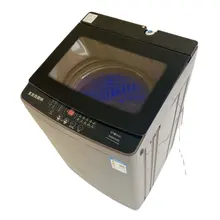
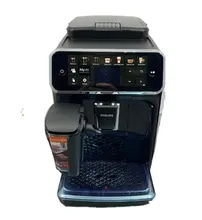
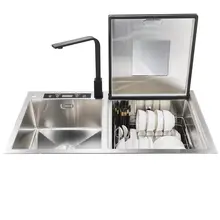

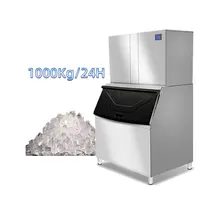


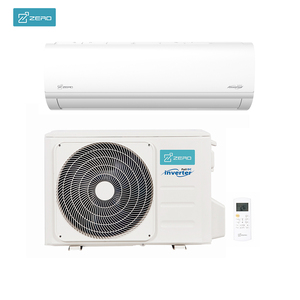




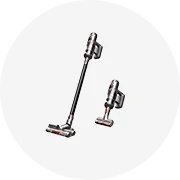



















 浙公网安备 33010002000092号
浙公网安备 33010002000092号 浙B2-20120091-4
浙B2-20120091-4